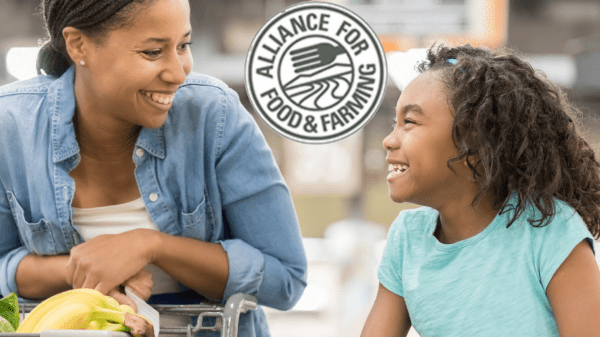From the Alliance for Food and Farming
March 31, 2022– Despite peer reviewed research showing it is scientifically unsupportable and negatively impacts consumers, the so-called “dirty dozen” list will be released next week.
This list was developed to invoke misplaced safety fears about the more affordable and accessible forms of fruits and vegetables – a food group we are encouraged to eat more of every day to maintain healthy immunity, prevent illness and increase lifespan.
Before covering or using this list, we ask you to consider these facts about the “Dirty Dozen” list and produce safety:
“Dirty Dozen” Recommendations Are Unsupportable, Analyses Confirm Produce Safety
• A peer reviewed study found that the “Dirty Dozen” list’s suggested substitution of organic forms of produce for conventional forms did not result in any decrease in risk because residues on conventional produce are so very low, if present at all.
• The EWG clearly states that they ignore basic rules of risk assessment and toxicology. From EWG’s report: The “Dirty Dozen” list “does not incorporate risk assessment into the calculations.”
• A child could eat hundreds to thousands of servings of a fruit or vegetable in a day and still not have any health effects from residues, according to an analysis by toxicologists with the University of California’s Personal Chemical Exposure Program. This shows how very low residues are, if present at all.
• U.S. Department of Agriculture’s (USDA) Report shows that over 99% of residues found on fruits and vegetables, if present at all, are well below safety levels set by the Environmental Protection Agency (EPA) and a third had no detectable residues at all.
“Dirty Dozen” Negatively Impacts Consumers and Produce Consumption
• A peer reviewed study published in Nutrition Today found that when low income consumers heard inaccurate safety claims from the “Dirty Dozen” list report, they stated they were less likely to purchase any produce – organic or conventionally grown.
• In a survey among registered dietitians/nutritionists, 94% agreed that fear based messaging regarding residues has a negative impact on consumers because it causes misplaced concern about whether conventionally-grown fruits and vegetables are safe to eat.
• When shown infographics and other content carrying inaccurate messaging about residues and produce safety from the “dirty dozen” list authors, the survey found an overwhelming 95% of registered dietitians agreed that this type of communication discourages produce consumption.
A Food Group Health Experts Agree We Should Eat More of Every Day
• If just half of all Americans increased their consumption of a fruit or vegetable by a single serving each day, 20,000 cancer cases could be prevented every year, according to peer reviewed research.
• Decades of nutritional studies confirm that increasing consumption of conventional and organic produce prevents diseases, improves health and increases lifespan. One example is a new peer reviewed study published in Plos Medicine which shows a plant-rich diet can add three to ten years to your life expectancy.
• According to the Centers for Disease Control and Prevention, only one in 10 Americans eat enough fruits and veggies each day. Dietitians encourage consumers to eat whatever type of produce they enjoy, is affordable and accessible for them. Just eat more.
Final Facts to Consider:
• Just wash it! According to the FDA, washing produce under running tap water can reduce and often eliminate pesticide residues, if they are present at all.
• A farmer’s first consumer is their own family so food safety is always their priority.
The Alliance for Food and Farming (AFF) continues to urge the list authors to rethink promoting inaccurate, fear-based messaging about the more affordable and accessible produce items. Instead, consumers should be encouraged to eat more organic and conventional fruits and vegetables every day. Both production methods yield safe and healthy foods that can be eaten with confidence. For more information about produce safety visit safefruitsandveggies.com.
Please join the AFF to support consumer choice by participating in our new contest on social media. Simply share a picture of your favorite fresh fruits and veggies, of you washing fresh produce (view the Just Wash It section for proper washing and handling information), or just enjoying your favorite healthy snack along with the hashtag #NoMoreDirtyDozen.



